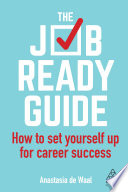

The book emphasizes the importance of understanding current job market trends and how they influence hiring practices. It discusses various sectors that are thriving and those that are declining, providing insights into the skills that are in demand. Readers are encouraged to research industries that interest them, noting the skills and qualifications that employers are seeking. This knowledge enables job seekers to tailor their resumes and prepare for interviews more effectively. Moreover, the guide suggests leveraging online resources and networking to stay informed about shifts in the job market. By being proactive and adaptable, individuals can position themselves as strong candidates in an ever-evolving landscape.
Continue readingA significant focus of the book is on the concept of personal branding. It explains how job seekers can create and promote their personal brand to stand out in a crowded job market. This involves identifying one's unique skills, values, and experiences and effectively communicating them through various platforms, including social media, personal websites, and professional networks like LinkedIn. The guide offers practical tips on crafting a compelling narrative that highlights achievements and showcases expertise. By building a strong personal brand, individuals can attract potential employers and differentiate themselves from other candidates.
Continue readingNetworking is presented as a critical component of job readiness. The book outlines strategies for building and maintaining professional relationships, emphasizing the value of both online and offline networking. It encourages readers to attend industry events, engage in community activities, and utilize social media to connect with professionals in their desired field. The guide highlights the importance of nurturing these relationships, as they can lead to job opportunities, mentorship, and valuable insights into industry trends. By fostering a robust professional network, individuals can enhance their job prospects and gain access to resources that may not be publicly available.
Continue readingThe book provides a comprehensive overview of essential job application components, including resumes, cover letters, and interview preparation. It breaks down the elements of a strong resume, such as formatting, keyword optimization, and tailoring content to specific job descriptions. The guide stresses the importance of crafting personalized cover letters that reflect genuine interest in the position and organization. Additionally, the book offers strategies for effective interview preparation, including common questions, behavioral interview techniques, and the importance of practicing responses. By mastering these application essentials, readers can significantly increase their chances of landing interviews and securing job offers.
Continue readingThe book highlights the significance of transferable skills in the job search process. It explains that these skills—such as communication, problem-solving, and teamwork—are applicable across various roles and industries. The guide encourages readers to identify and articulate their transferable skills, demonstrating how past experiences, whether in education, volunteer work, or previous employment, have equipped them with these competencies. By focusing on transferable skills, job seekers can broaden their appeal to potential employers and pivot into new roles or industries with confidence.
Continue readingA key theme in the book is the necessity of continuous learning and adaptability in today’s job market. The guide stresses that technological advancements and changing industry standards require individuals to commit to lifelong learning. It encourages readers to seek out opportunities for professional development, such as online courses, certifications, and workshops. The book also discusses the importance of being adaptable—demonstrating a willingness to learn new skills and embrace change. By cultivating a mindset of growth and flexibility, individuals can stay relevant and competitive in their careers.
Continue readingThe book underscores the importance of emotional intelligence and soft skills in the workplace. It explains how these qualities—such as empathy, self-awareness, and interpersonal skills—are crucial for building effective working relationships and navigating workplace dynamics. The guide provides strategies for developing emotional intelligence, including self-reflection, active listening, and constructive feedback. By honing these soft skills, job seekers can enhance their employability and contribute positively to organizational culture, making them more attractive candidates in the eyes of employers.
Continue readingThe reading time for The Job-Ready Guide depends on the reader's pace. However, this concise book summary covers the 7 key ideas from The Job-Ready Guide, allowing you to quickly understand the main concepts, insights, and practical applications in around 22 min.
The Job-Ready Guide is definitely worth reading. The book covers essential topics including Understanding Job Market Trends, Building a Personal Brand, Networking and Relationship Building, providing practical insights and actionable advice. Whether you read the full book or our concise summary, The Job-Ready Guide delivers valuable knowledge that can help you improve your understanding and apply these concepts in your personal or professional life.
The Job-Ready Guide was written by Anastasia de Waal.
If you enjoyed The Job-Ready Guide by Anastasia de Waal and want to explore similar topics or deepen your understanding, we highly recommend these related book summaries:
These books cover related themes, complementary concepts, and will help you build upon the knowledge gained from The Job-Ready Guide. Each of these summaries provides concise insights that can further enhance your understanding and practical application of the ideas presented in The Job-Ready Guide.